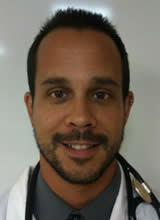
“Her name is Billie, named after Billie Holiday,” my friend John said to me over the phone, the day after his first daughter was born last month. I was happy for him, but felt a profound sadness for myself at the same time. When I first held Billie a week later, it awoke something inside me—something biologically and socially ingrained, to want what John had.
I spend most of my time living in Rwanda, but I return home every three months to work in Boston for a month. I visit friends and family all over the US during my time off, and I am jealous of their lives. I covet their houses, their children and their marriages. It’s not lust or greed, but I want what they have. They’ve gone shopping for engagement rings. They’ve purchased cars and houses. They’ve actually given birth to children of their own while I’ve only attended to dozens others. They wake up in the same bed every morning, drive to their job every day, and stop at the grocery store before returning home for a family dinner.
I crave that normalcy. I have three different domiciles in Rwanda, splitting my time each week between them. When I’m back in the US I sleep on a half dozen couches and beds and hospital call rooms. Witnessing my friends in their natural element brings it home to me in a way that Facebook pictures of their child’s first day of school never could.
I’m nearly 33-years-old. I’m single, and terribly so. The rural Rwandan town where I live has a few thousand people in it, most of them peasant farmers that don’t speak any language I do, making it difficult to date each other. There are cultural, socioeconomic, and linguistic barriers to dating a Rwandan, even a professional Rwandan woman. I see the same 10 Americans every day at work, and any chance at love should have long since blossomed. I want to have children, but I don’t foresee the conditions being right any time before I’m 40-years-old. My future family is obscured to me at the same time as others are building theirs in concrete and beautiful ways.
During the year I’ve been in Rwanda, I’ve been to two close friends’ weddings and missed six others because of the distance from Africa. My brother will get married in a month, and I will fly across the world to be there. Four good friends have given birth to children. My younger sister had her second child, and as I stood godfather to him at his baptism, I couldn’t help but question my way of life.
I’m envious of my friends who–even within the confines of the traditional nuclear family structure–have found a way to make their own, innovative communities. I recently stayed with friends in San Francisco who are married with a 1-year-old daughter while another set of recently married friends lives in their basement, partially due to financial constraints and partially out of a mutual love for each other and a desire for a bohemian lifestyle. On my last night there, we sat down to dinner like one big family, with the baby cooing in the high chair and the dog under the table waiting for leftovers. This is life, I thought. I realize I will have to sacrifice my freedom to be a member of a family again, and I stand ready to jump over the precipice, but I just simply don’t know where to go.
When I’m in Rwanda, I don’t think as much about the things in life that are passing me by, but they hit me in the face when I’m changing my nephew’s diaper. I remember when I lived in New York that I craved the adventure of life abroad, and every time I returned home from Haiti or Uganda, I wanted to go back. I have another good friend who lives a similarly absurd life as I do, and we commiserate over beers in Washington or Kampala, wherever the world has taken us. My single friends in Rwanda have made similar sacrifices, and on quiet nights, we can all hear our biological clocks ticking away. But then we take a weekend trip to see some of the world’s last remaining mountain gorillas, or hike a volcano in the Congo, or fly to Dubai for a weekend on the beach.
“You live such an interesting life,” a friend said to me on the most recent trip back to New York. “Traveling the world and saving lives. I mean, you met President Clinton! I’ve been working at this law firm for two years, and already I’m clawing at the walls to get out, to find some change. I’m so jealous.”
As I do my rounds in the hospital ward in Rwanda, I’m reminded of the family and friends that I do have, the tranquility of life in rural Rwanda, and the amazing opportunities to get to know humanity that I’ve been afforded by my job rare the access to intimate moments of life and death that people have shared with me. Perhaps there is green grass all over the world, and each different shade of green is just as beautiful as the next. I’ll just have to wait patiently for the time when the grass on my side transitions from one rich color green to the next.
Vincent DeGennaro is an internal medicine doctor and a global public health specialist in the Department of Global Health and Social Medicine, Harvard Medical School. He also works with the international nonprofit organization Partners in Health. See his An American Doctor in Rwanda blogs.